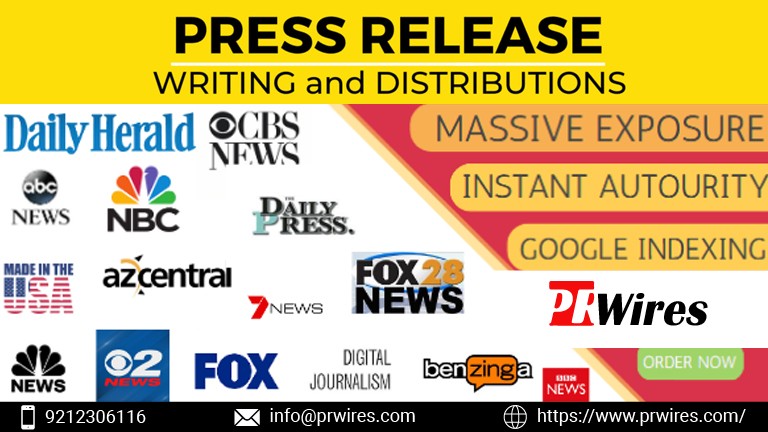In the realm of search engine optimization (SEO), one critical aspect is ensuring that your web pages are indexed by Google. Without indexing, your content will not appear in search engine results, limiting its visibility and potential traffic. If you’re struggling with a page not being indexed, there could be several reasons behind this issue. Understanding these reasons can help you diagnose and resolve indexing problems effectively. Here are 14 common reasons why Google might not be indexing your page:
1. Robots.txt File Restrictions
The robots.txt file on your website is designed to instruct search engines which pages or sections they are allowed to crawl. If this file contains directives that disallow crawling or indexing of specific pages, Google may not index those pages. Check your robots.txt file to ensure it’s not blocking the pages you want indexed. You can use tools like Google Search Console to review and update this file.
2. Noindex Meta Tags
A common reason for pages not being indexed is the presence of a noindex meta tag in the HTML code. This tag explicitly tells search engines not to index a page. Verify the HTML source of your page to ensure it doesn’t contain the <meta name="robots" content="noindex"> tag. If you want the page to be indexed, you need to remove or modify this tag.
3. Canonicalization Issues
Canonical tags are used to indicate the preferred version of a page when there are multiple versions with similar content. If a page has a canonical tag pointing to another URL, Google may choose to index the canonical URL instead of the page you’re targeting. Ensure your canonical tags are correctly set up and pointing to the appropriate URLs.
4. Server Errors
If your server returns errors like 404 (Page Not Found) or 500 (Internal Server Error), Google may be unable to index your pages. Regularly monitor your server logs and fix any issues that might cause errors. Tools like Google Search Console can help identify server errors and other crawl issues.
5. Blocked by Firewall or Security Software
Sometimes, firewalls or security software can inadvertently block search engine bots from accessing your site. Ensure that your site’s security settings are configured to allow Googlebot and other search engine crawlers to access your content. You can test this by using Google’s URL Inspection Tool.
6. Poor Internal Linking Structure
A poor internal linking structure can prevent search engines from discovering and indexing pages. Ensure that your site has a clear and logical internal linking structure. Pages should be easily accessible from other parts of your website, preferably through navigational elements like menus and sitemaps.
7. Duplicate Content Issues
Google may choose not to index pages with duplicate content to avoid redundancy. If your page contains content that is too similar to other pages on your site or elsewhere on the web, it may not be indexed. Focus on creating unique and valuable content to improve your chances of indexing.
8. Lack of External Links
Pages that don’t have any external links pointing to them might not be crawled or indexed. Google uses external links as a signal of a page’s importance and relevance. Work on building high-quality backlinks to your pages to enhance their visibility and indexing potential.
9. Page Not Included in Sitemap
An XML sitemap helps search engines discover pages on your site. If a page is not included in your sitemap, it might not be crawled or indexed. Ensure that your sitemap is up-to-date and includes all the pages you want indexed. Submit the sitemap through Google Search Console for better indexing.
10. Content Too Thin
Pages with very little content, often referred to as “thin content,” may not be indexed by Google. Ensure that your pages offer substantial and valuable information to users. Aim for comprehensive content that answers users’ queries and provides meaningful insights.
11. Crawl Budget Limitations
Google allocates a crawl budget for each site, which is the number of pages Googlebot will crawl within a specific time frame. If your site has a large number of pages or if it’s frequently updated, Google may not crawl all pages. Optimize your site’s crawl budget by prioritizing important pages and removing or consolidating low-value content.
12. New or Recently Updated Pages
Newly created or recently updated pages might not be indexed immediately. Google’s indexing process can take some time, especially if your site is new or hasn’t been crawled frequently. Give it some time and ensure that there are no issues preventing Google from discovering these pages.
13. Page Redirects
If a page is set up with a permanent (301) or temporary (302) redirect, Google may index the destination page instead of the original one. Verify that redirects are properly configured and that they point to the intended target. Misconfigured redirects can lead to indexing issues.
14. Penalties or Manual Actions
Google may impose penalties or manual actions if it deems that your site violates its guidelines. If your site has been penalized, pages may not be indexed or may be removed from the index. Check Google Search Console for any manual action notifications and address any issues identified by Google.
Troubleshooting and Solutions
If you’re experiencing issues with Google not indexing your pages, here are some steps you can take to diagnose and resolve the problem:
Use Google Search Console: Google Search Console provides insights into how Google crawls and indexes your site. Use the URL Inspection Tool to check the status of your pages and identify any indexing issues.
Check Your Robots.txt File: Ensure that your robots.txt file does not inadvertently block important pages from being crawled and indexed.
Review Your Meta Tags: Confirm that noindex meta tags are not mistakenly applied to pages you want indexed.
Validate Your Canonical Tags: Make sure canonical tags are correctly implemented and pointing to the right URLs.
Fix Server Errors: Address any server errors that might be preventing Google from accessing your pages.
Improve Internal Linking: Strengthen your internal linking structure to facilitate better crawlability and indexing.
Monitor and Improve Content: Create valuable, unique content and avoid duplication to enhance your pages’ indexing potential.
Build Backlinks: Increase the number of high-quality external links pointing to your pages to boost their visibility.
Update Your Sitemap: Ensure your XML sitemap is accurate and submitted to Google Search Console.
Optimize Crawl Budget: Manage your crawl budget by prioritizing important pages and improving site efficiency.
By addressing these common issues and following best practices, you can improve the likelihood of your pages being indexed by Google, ultimately enhancing your site’s visibility and performance in search results.
FAQs
1. What does it mean if Google isn’t indexing my page?
If Google isn’t indexing your page, it means that the page isn’t appearing in Google’s search results. This could be due to various issues that prevent Google from crawling and including the page in its index.
2. How can I check if my page is indexed by Google?
You can check if your page is indexed by using Google Search Console’s URL Inspection Tool or by performing a site search on Google. Simply type site:yourdomain.com/your-page-url into Google’s search bar to see if the page appears in the search results.
3. What should I do if my robots.txt file is blocking Google from indexing my page?
If your robots.txt file is blocking indexing, you need to edit the file to allow access to the page. Ensure that the file doesn’t contain disallow directives that prevent Googlebot from crawling the page you want indexed.
4. How do I remove a noindex meta tag from my page?
To remove a noindex meta tag, access the HTML source code of your page and delete the <meta name="robots" content="noindex"> tag. Save the changes and request indexing through Google Search Console.
5. What is a canonical tag and how can it affect indexing?
A canonical tag informs Google about the preferred version of a page when there are duplicates. If your page has a canonical tag pointing to another URL, Google may index the canonical URL instead. Ensure your canonical tags are correctly set to the intended URLs.
6. How can I fix server errors that prevent indexing?
To address server errors, check your server logs for 404 or 500 errors and resolve any issues causing these errors. Ensure your server is functioning correctly and is not blocking Googlebot.
7. How can I allow Googlebot to access my site if it’s being blocked by security software?
Check your site’s firewall or security software settings to ensure that Googlebot and other search engine crawlers are allowed to access your content. Configure the settings to avoid accidental blocking.
8. Why is my internal linking structure important for indexing?
A well-organized internal linking structure helps Googlebot discover and crawl all pages on your site. Ensure your pages are linked in a logical manner and accessible through your site’s navigation.
9. What should I do if my content is too similar to other pages?
To avoid duplicate content issues, ensure your page offers unique, valuable content that isn’t redundant with other pages. Focus on providing original insights and information.
10. How can external links influence the indexing of my page?
External links (backlinks) signal to Google the importance and relevance of your page. Pages with quality backlinks are more likely to be crawled and indexed. Work on building high-quality backlinks to improve indexing chances.
11. How often should I update my XML sitemap?
Your XML sitemap should be updated regularly to reflect any changes or additions to your site. Submit the updated sitemap through Google Search Console to help Google discover new or updated pages.
12. What is crawl budget, and how can it affect my page’s indexing?
Crawl budget is the number of pages Googlebot will crawl within a certain period. If your site has many pages or frequent updates, Google might not crawl all pages. Optimize your crawl budget by prioritizing important content and removing low-value pages.
13. How long does it typically take for Google to index new or updated pages?
Indexing can take some time, especially for new or updated pages. It might range from a few days to several weeks. Regularly monitor your page status in Google Search Console and ensure there are no issues preventing indexing.
14. How can I check if my page has been penalized or subject to manual actions?
Google Search Console will notify you if your site has been penalized or subject to manual actions. Check for any manual action reports and follow the recommended steps to resolve issues and request a review.
Mobile - +91 9212306116
Whatsapp – https://call.whatsapp.com/voice/9rqVJyqSNMhpdFkKPZGYKj
Skype – shalabh.mishra
Telegram – shalabhmishra
Email - info@webinfomatrix.com

%20(1).jpg)
.jpg)
.jpg)
.jpg)






 English (US) ·
English (US) ·